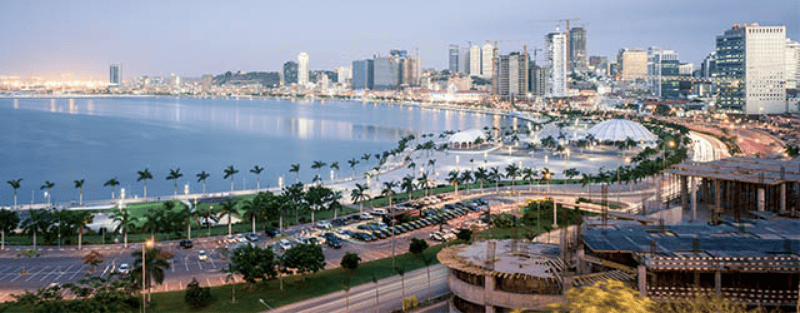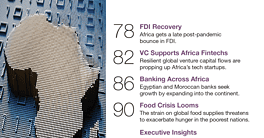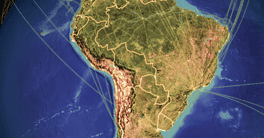Infrastructure and economic development needs are challenging countries to provide jobs, as urban growth is poised to surge over the next decade.

Booming urban populations pose a variety of challenges, as African countries seek to chart growth plans for the next generation.
Forecasts for increased population in African cities vary, but among them, the United Nations predicts that by 2030, three cities will achieve megacity status, meaning that they will have more than 10 million people. Dar es Salaam, Tanzania, will grow to 10.8 million; Johannesburg, South Africa, will increase to 11.6 million; and Luanda, Angola, will hit 10.4 million. Already in the megacity category, Cairo, Egypt, will grow to 24.5 million; Kinshasa, the Democratic Republic of the Congo, will increase to nearly 20 million; and Lagos, Nigeria, will swell to 24.2 million.
A common belief is that domestic migration is the main driver of urban population growth, but that is not necessarily true, says Somik V. Lall, global lead for territorial development and lead urban economist for Africa at the World Bank. “When you look at the debate on city growth, everyone says that it’s the migrants coming in,” Lall says. “But when you look at the growth of African cities, the fertility rates are very high (and) in some places, like Tanzania, rural and urban fertility rates are almost similar.”
This huge growth is not without its challenges, says Melissa Cook, managing director of the advisory boutique African Sunrise Partners. “The risk on the continent of Africa is that some countries ignore urban planning and end up with a mass of underemployed people,” she says.
These factors open foreign direct investment (FDI) opportunities in agribusiness because the government hopes to make it more profitable for residents to stay in rural communities. “Nigeria has a very strong philosophy that, rather than having everyone rush to the cities and be as desperate as they were in the country, to try and improve economic conditions in the countryside so that people can stay there and be productive,” Cook says. (Other agribusiness targets with FDI opportunities run through the value chain, including mechanization, irrigation, harvest, storage, processing and packaging.)
However, some sober realities mean that not all major cities can deal with all of these projects immediately. In some cases, public policy solutions are required. Cities such as Lagos and Dar es Salaam are not organized as efficient economic centers, but rather grew up as small pockets of development over time without an overall master plan. “This really makes it difficult for these connections to take place,” Lall says. “Also importantly, it makes it difficult for any technology, transportation or infrastructure to be provided. In these cases, public policy solutions could mean that basic city infrastructure is the first priority, with other goals for FDI to come later.
Political risks vary among these countries. In March, the Tanzanian government imposed an export ban on unprocessed ore to spur construction of smelters. It has revised mining and tax laws to set a minimum 16% ownership stake for the government in mining projects, while also raising export royalties, giving itself the right to cancel contracts and canceling the right to international arbitration of contract disputes.
Limitations vary among different countries. “In South Africa, you just have to know the rules of the game before you go in,” Cook says. “A foreign company is unlikely [to win a project] on its own, because of very strong local content and local ownership requirements.” n



